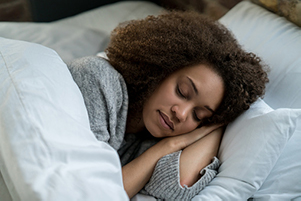
Sleep apnea is a sleep disorder in which your breathing pattern is interrupted by other factors. People with sleep apnea experience interruptions in their breathing pattern repeatedly when sleeping. This can happen up to 400 times a night, depending on the severity of their case.
Based on statistics from reputed researchers, there are an estimated 22 million Americans who suffer from mild to severe cases of sleep apnea. When your sleep apnea is left untreated, it can lead to even more serious problems and put your health at risk. If you or someone you know has sleep apnea, our team at Smile Family Dentistry can help.
Men are twice as likely to get sleep apnea than women. Obstructive sleep apnea (OSA) is more common among men than women. The pathophysiological differences in men's and women's upper airway anatomy and hormones play a role in why men are more prone to the disease.
People who drink alcohol are at a higher risk of getting this sleeping disorder. Sleep apnea occurs if there is not enough space in the upper airway to let the air flow continuously. Drinking alcohol relaxes your stomach and throat, weakening the upper airways of your body. When this happens, the chances of developing sleep apnea increases.
Aside from changing how your airways work, too much alcohol can also reduce your brain's natural response when sleeping. Without this, your body would not interrupt an apneic event like it normally does and you will not get enough oxygen, leading to daytime drowsiness. Alcohol intake can also impact your body's melatonin production negatively which can degrade the quality of sleep you get.
Your weight can also boost the risk of getting sleep apnea. Overeating can cause fat tissues called pharyngeal fat to build up in your neck. Pharyngeal fat can block your upper airway when sleeping, minimizing the oxygen that goes through. Increased abdominal girth because of too much fat can compress your chest wall and reduce your lungs' capacity. Drinking alcohol without control can also make you gain weight and develop obesity which can further increase your risk of getting sleep apnea.
Though older people are more likely to get obstructive sleep apnea, everyone, no matter what age, is at risk if optimal care is not taken. Kids and even newborns can also get sleep apnea. This condition affects nearly 32% percent of people above the age of 65. Getting a good night's sleep becomes increasingly difficult with age. This is likely because of the change in health status that comes with age.
Sleep apnea can be dangerous, but fortunately, there are treatment options to treat it. At Smile Family Dentistry, we can help you achieve that good night's sleep if you have trouble sleeping peacefully. For more information or to schedule an appointment with us, do not hesitate to contact us at 925-825-1130.